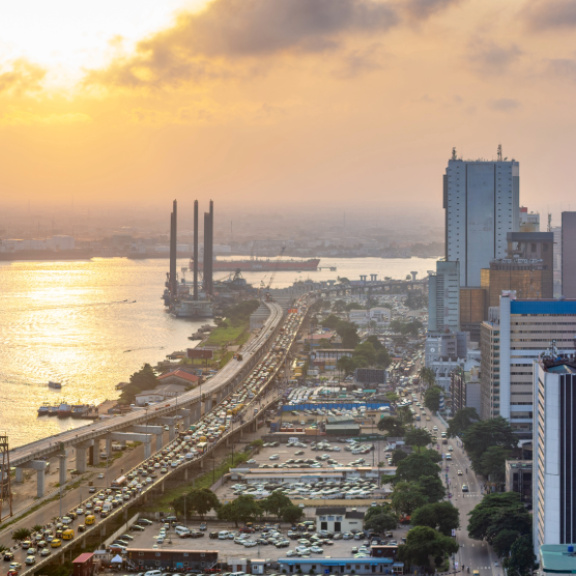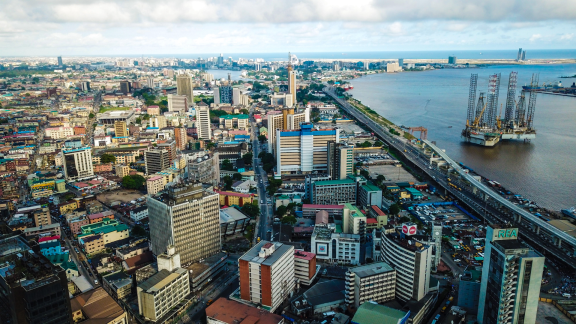
Emigrating to Nigeria
Emigrate to Nigeria: Find out the most important information for your stay here
Emigrating to Nigeria offers a unique opportunity to experience a country full of cultural diversity and hospitality. Nigeria is characterized by numerous ethnic groups, languages and traditions that enrich daily life. This cultural diversity is reflected in the festivals, art forms and customs that make the country vibrant. Anyone wishing to emigrate to Nigeria will encounter a warm and welcoming society, as the hospitality of Nigerians is widely known.
Nigeria also offers a wide range of leisure activities: from impressive natural wonders and national parks to historical sights, museums and cultural events. Those who choose to live in Nigeria should take the time to understand and respect the country's culture in order to get to know the country and its people authentically.
Facts about Nigeria
Capital City
Abuja
Population
229.2 million
Surface Area
356,669 mi² or 923,769 km²
Continent
Africa
Official Language
English
Currency
Naira (NGN)
Emigrating to Nigeria: An overview of the political system
Emigrating to Nigeria offers the opportunity to live in a federal republic divided into 36 states and a capital territory. Each state has its own government and administration. The country's constitution provides for a clear separation of powers between the executive, legislature and judiciary. Nigeria has a multi-party system with a large number of political parties and is run as a presidential republic. The president, who is both head of state and head of government, is elected directly by the people and has a four-year term of office. Elections to the National Assembly are also held every four years. Freedom of expression is generally guaranteed in Nigeria. Anyone wishing to emigrate to Nigeria should take these political and social conditions in the country into account.

Climate in Nigeria: Important information for emigrants
Emigrating to Nigeria requires a deep understanding of the climatic conditions in order to be optimally prepared. Southern Nigeria has a tropical, humid climate with year-round high temperatures of over 30 degrees Celsius and high humidity, which can create a muggy feeling. The rainy season lasts from April to October, with frequent heavy rainfall and flooding. The short dry season from November to March is slightly cooler and drier, but still warm. Emigrating to Nigeria also means adapting to these humid climatic challenges.
In the north, on the other hand, the climate is hot and dry with high temperatures, especially during the long dry season from October to May. The rainy season in the north only lasts from June to September and is less pronounced than in the south. Droughts can occur during the dry season. Expats should be aware of the climatic conditions in order to prepare well and enjoy life in Nigeria.

Healthcare system in Nigeria: Important facts for emigrants
Emigrating to Nigeria also means getting to grips with the country's healthcare system. The private healthcare system generally offers a better quality of care than the public system. In the larger cities, there are many private hospitals and clinics with modern facilities and well-trained doctors. However, the cost of treatment in the private sector is usually high. It is therefore advisable to emigrate to Nigeria and take out private health insurance in order to receive good care in the event of illness. There are numerous international and local insurance providers whose costs vary depending on the scope of benefits and the age of the insured person.

Emigrating to Nigeria: An overview of the economic situation and quality of life
In Nigeria, the gross domestic product per capita amounted to 887.07 US dollars in 2024. The Gini coefficient of wealth describes the distribution of wealth. The indicator is an established, internationally comparable measure of wealth inequality. It is measured on a scale from zero to one. The higher the value, the greater the inequality. The Gini coefficient in Nigeria is expected to be 0.35 in 2025 (source: Statista).
Emigrating to Nigeria requires an understanding of regional differences, especially in the north of the country. Some areas are safer and offer a higher quality of life than others. Agriculture plays a central role in the economy of the north, with the cultivation of products such as cotton, peanuts, sorghum and millet. Emigrating to Nigeria could offer interesting career opportunities for professionals in agriculture or agribusiness.

National holiday
Independence Day
Nigeria: Africa's largest oil producer
Nigeria is the largest oil-producing country in Africa and the 16th largest oil producer in the world. The most important production region is the coastal Niger Delta Basin, also known as the "South-South" region, which comprises 78 of the country's 159 oil fields. In addition to oil production, Nigeria also plays an important economic role, as it is the largest economy in Africa. It is also the most populous country on the continent, which further increases its economic and geopolitical importance.

Emigrate to Nigeria- Entry Requirements
Entry is possible for German nationals with the following documents:
- Passport: Yes
- Temporary passport: Yes
- Identity card: No
- Temporary identity card: No
- Children's passport: Yes
Notes/minimum validity:
Travel documents must be valid for at least six months at the time of entry and have a machine-readable line.

FAQs for emigrating to Nigeria
Where can I find relevant information about my country of entry and the entry regulations that apply there?
We have compiled destination country information as well as entry requirements and customs information for many countries in the Relocation Service section of our website and are constantly expanding this section.
Can I use my own container that I already own for the move with DACHSER & KOLB?
For every removal, which we at DACHSER & KOLB always offer as a door-to-door (full service) removal, a container is rented for the duration of the removal. We therefore do not offer the option of using your own container.
Who is responsible for my move abroad and the services I need there?
As a FIDI member, we work abroad with selected, long-standing partners who work in accordance with our service standards.
Are my removal goods insured in the event of damage?
For every overseas move, we naturally cover transportation insurance at current value for the used household goods and personal belongings
What types of transportation do you offer for overseas relocation?
It is generally possible to carry out overseas removals via air freight or sea freight. In the case of sea freight, it is possible to ship the removal goods as additional cargo (“LCL shipment” with Liftvan) or with a container (FCL shipment in 20 feet, 40 feet or 40 feet high cube). We will be happy to discuss which option is best for you in a personal consultation.
When and how must the move be paid for and what is the payment deadline?
You will receive an invoice a few weeks after placing the order and pay the full amount directly in advance.
Do I have to pay taxes and customs duties on my removal goods?
Removal goods can be imported tax and duty-free into most countries if you have a valid residence permit. We will be happy to check the options for importing the removal goods for your desired destination country in a personal consultation.
Are you interested in moving to Nigeria or another destination country?
Then do not hesitate and contact us today.
Sabrina Klier
Customer Service & Sales - AIR & SEA






